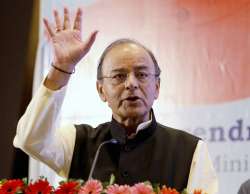FDI route simplified as Union Cabinet approves abolition of FIPB
Approval for FDI in sectors that fell under the ambit of the FIPB will now come from the ministries concerned and a fresh mechanism for the same is on the anvil, the Finance Minister said

The government’s attempts to remove hurdles in the way of foreign investment in select sectors got a leg up with the government clearing a proposal for abolition of the Foreign Investment Promotion Board, the single window for allowing FDI under the approval route since the early 1990s, at its meeting today.
The Union Cabinet, led by Prime Minister Narendra Modi, met today and agreed to the abolition of the FIPB, Fiannce Minister Arun Jaitley said briefing reporters after the meeting.
With the FIPB abolished, approvals to a handful of sectors which do not fall under the automatic route will come from ministries concerned.
"FIPB will be replaced by a new mechanism under which the proposals will be approved by the ministries concerned as per the standard operating procedure approved by the Cabinet," Jaitley said, adding that proposals in sensitive sectors will require the Home ministry's approval.
On the proposals pending with FIPB, he said they will go back to the ministries concerned.
The FDI proposals above Rs 5,000 crore would continue to be cleared by the Cabinet Committee on Economic Affairs.
here could also be a provision for quarterly review of pending proposals by the economic affairs secretary and annual review by the Finance minister.
The Finance ministry could take three to four weeks to wind up the FIPB. Jaitley said the it was only the time that will be taken for the transition that will be required for the process to finish once the notification is out.
The move follows an announcement by Finance minister Arun Jaitley during his Budget Speech for the financial year 2017-18.
“We have now reached a stage where the FIPB can be phased out. We have decided to abolish it in 2017-18,” he had said during his Budget speech on February 1.
The move may also open the doors for further liberalization of the FDI regime, that had also been signaled by the FM.
Sectors where industry players have asked for further easing of rules include aviation, defence and pharmaceuticals. The government had allowed full FDI in defence after approval; investors can pump in up to 49 per cent through automatic route.
For brownfield projects in the pharmaceutical sector, automatic approval had been extended to 74 per cent.
The FIPB has seen many of its power being taken away in the current dispensation. In June 2016, the government had announced relaxed FDI norms in single-brand retail, civil aviation, airports, pharmaceuticals, animal husbandry and food products. The announcement meant that investors in these sectors do not need seek approval from the FIPB.
Set up in 1990 under the Prime Minister’s Office, it was transferred to the Commerce ministry’s Department of Industrial Policy and Promotion (DIPP) in 1996, and then to Finance ministry’s Department of Economic Affairs (DEA) in 2003.
Inflow of foreign direct investment into India increased by 9 per cent to USD 43.48 billion in 2016-17.
(With agencies)